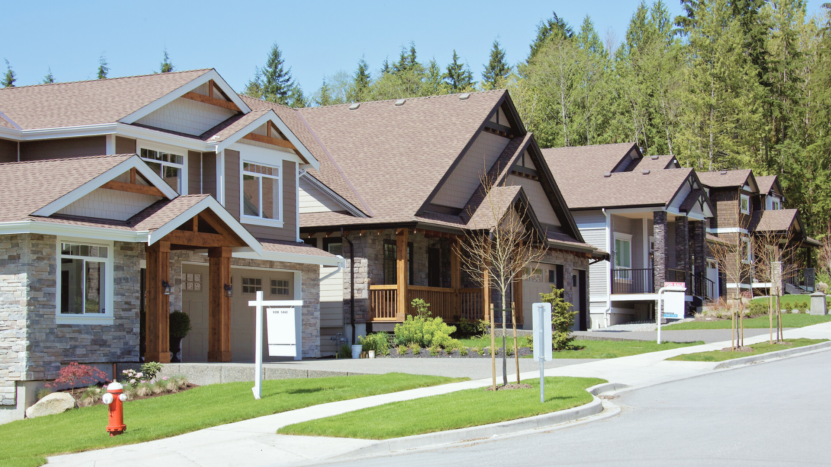
Here we can break down the specifics of capital gains taxes when it comes to rental properties with different situations, strategies, and methods you can use to lower the amount of taxes you have to pay while boosting your investment profits.
What Are Capital Gains Taxes And How Do They Work With Rental Property?
Understanding Capital Gains Taxes
Before we dive into the specifics of how capital gains taxes relate to rental properties, let’s first grasp the concept. A capital gain occurs when you profit from selling something – in this case, your rental property. Capital gains taxes are the taxes you’re required to pay on that profit.
Capital Gains and Rental Properties
When it comes to rental properties, capital gains taxes kick in when you sell a property for more than you originally paid for it. This difference between the sale price and the purchase price is your capital gain. It’s like the reward for making a shrewd investment or taking good care of your property.
Calculating Capital Gains
Calculating capital gains might seem like a math puzzle, but it’s actually quite straightforward. To determine your capital gain, subtract the amount you paid for the property – known as the “cost basis” – from the amount you sold it for. This resulting amount is your capital gain.
However, don’t worry if you’re not great with numbers – there are accountants and tax professionals who specialize in helping with these calculations. They’ll ensure that you’re accurately determining your capital gains and paying the right amount of taxes.
View mortgage rates for
April 27, 2024
What Are Capital Gains On Rental Properties?
Defining Capital Gains for Rental Properties
Specifically in the context of rental properties, capital gains refer to the profit you make when selling a property that you’ve been renting out. It’s the difference between what you originally paid for the property and the final selling price.
Calculating Capital Gains for Rental Properties
Calculating capital gains for rental properties involves understanding both the initial investment and the current value. Take the original purchase price, add any additional expenses you’ve put into the property (like renovations or improvements), and subtract this total from the selling price. The result is your capital gain from the rental property.
Understanding these calculations is essential because it directly impacts how much you might owe in taxes when you sell your rental property. But fear not – as we journey through this guide, we’ll uncover ways to potentially minimize these tax obligations, ensuring you keep more of your hard-earned profits.
Short-Term Capital Gains
Understanding Short-Term Capital Gains
Short-term capital gains come into play when you sell your rental property within a relatively short time after acquiring it. This time frame is usually less than a year, but it can vary based on current tax regulations. The key takeaway here is that short-term gains are generated from properties held for a short period.
How This Applies to Rental Property Sales
When you sell a rental property for more than you originally paid for it within the specified short time frame, any profit you make is categorized as a short-term capital gain. This includes both the appreciation of the property’s value and any rental income you’ve earned during the ownership.
Higher Tax Rates for Short-Term Capital Gains
Short-term capital gains typically have higher capital gains tax rates compared to long-term gains. The reason behind this is to discourage the quick buying and selling of properties, which could lead to more speculative behavior in the real estate market. The logic is that if you’re making a substantial profit in a short time, you’ll need to contribute a larger portion of that profit in taxes.
Long-Term Capital Gains
Defining Long-Term Capital Gains
Long-term capital gains, on the other hand, stem from the sale of a rental property that you’ve held onto for an extended period, usually over a year. This time frame varies based on current tax regulations. Long-term gains are often seen as rewards for patient investing and stable ownership.
Tax Implications of Long-Term Capital Gains
The tax treatment for long-term capital gains is more favorable than for short-term gains. Governments often offer reduced tax rates for these gains to incentivize long-term investing and stabilize the real estate market.
Lower Tax Rates for Long-Term Capital Gains
Compared to short-term gains, long-term capital gains generally have lower tax rates. This means you get to keep a larger portion of your investment profits when you hold onto your rental property for an extended period before selling it. The logic here is that rewarding those who commit to long-term ownership makes the real estate market more steady and predictable.
Strategies to Minimize Capital Gains Tax Burden
As a savvy rental property owner, you’re likely interested in legally reducing the amount of capital gains taxes you’ll have to pay upon selling your property. Fortunately, there are several strategies you can explore to achieve just that. Let’s dive into some effective approaches that can help you keep more of your investment gains in your pocket.
1. Convert The Property To Your Primary Residence
Understanding Property Conversion
One potential strategy involves converting your rental property into your primary residence before selling it. This process essentially changes the property’s status from an investment property to your main home.
Benefits of Conversion
The benefits here are twofold: first, if you’ve lived in the property for at least two out of the five years before selling, you might be eligible to exclude up to a certain amount of capital gains from taxation. Second, if you’re selling your primary residence, you could also benefit from a separate exclusion on capital gains tax.
2. Use A 1031 Exchange
Exploring the 1031 Exchange Process
Another strategy to consider is the 1031 exchange, also known as a “like-kind exchange.” This involves swapping your rental property for another property of equal or greater value. The beauty of this strategy is that it allows you to defer paying capital gains taxes on the sale if you reinvest the proceeds into another property.
Deferring Capital Gains Taxes
The 1031 exchange can be a powerful tool for maintaining your investment capital and expanding your real estate portfolio without the immediate tax hit that usually comes with selling a property at a gain.
3. Harvest Your Tax Losses
Understanding Tax-Loss Harvesting
Tax-loss harvesting involves strategically selling other investments that have experienced losses to offset the capital gains from your rental property sale.
Offsetting Gains with Losses
By utilizing this technique, you can essentially balance out your capital gains with capital losses, potentially reducing your overall tax liability.
4. Own The Property Longer
The Advantage of Holding Onto Your Property
A simple yet effective strategy for reducing your capital gains tax burden is to hold onto your rental property for a longer period. As we discussed earlier, long-term capital gains are often subject to lower tax rates than short-term gains.
Lower Tax Rates for Long-Term Ownership
By extending the duration of ownership, you can position yourself to take advantage of these lower tax rates, allowing you to retain more of your profits when you eventually decide to sell.
Exploring these strategies can provide you with a range of options for managing your capital gains taxes while enhancing your financial gains from your rental property endeavors. Remember, consulting with a tax professional or financial advisor can provide personalized guidance based on your specific situation.
FAQs About Capital Gains On Rental Property
1. Can I Avoid Paying Capital Gains Tax on Rental Properties?
While completely avoiding capital gains tax might not always be feasible, there are legitimate strategies, as we’ve discussed, that can help reduce or defer your tax liability. Strategies such as converting your property to your primary residence or utilizing a 1031 exchange can help you minimize the impact of capital gains taxes on your investment gains.
2. How Much Will I Have to Pay If I Sell My Rental Property?
The exact amount you’ll have to pay will depend on many factors, like the property’s initial cost, its current value, and how long you’ve owned it. Short-term gains are usually taxed at higher rates than long-term gains. And of course, it’s always wise to consult with a tax professional who can help you calculate a more accurate estimate based on your specific situation.
3. Are There Ways I Can Reduce What I Owe When I Sell?
Absolutely. We’ve covered several strategies throughout this guide – from depreciation deductions to deducting qualified expenses and increasing your property basis. Each of these strategies is designed to lower your capital gains tax liability legally, to help you retain more of your investment gains when you go to sell.
4. When Is Paying a Short-Term Capital Gains Tax a Good Strategy?
Paying a short-term capital gains tax might make sense in situations where you anticipate significant market fluctuations, potentially leading to a decline in your property’s value over time. In these cases, taking the profit quickly and accepting the higher tax rate could be more advantageous than holding onto the property and risking a potential loss.
Capital Gains Wrap Up
For rental property owners seeking to maximize their investment returns while adhering to tax regulations understanding capital gains taxes is essential. We of course know that every financial situation is unique, and thus recommend speaking with a tax professional who can help provide tailored guidance for your specific circumstances. And now by understanding these strategies, you’re better equipped to make informed decisions for your rental property investment and can work to secure the best possible outcomes.
























